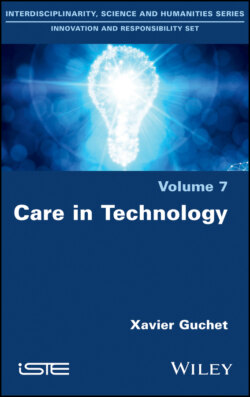Читать книгу Care in Technology - Xavier Guchet - Страница 9
Introduction
ОглавлениеHumanity by itself creates much devastation. A highly technologized humanity, intelligently technologized through a network, which has a geographical sense, is much less dangerous for nature than humanity by itself.
Gilbert SIMONDON
A nagging question haunts our era: can we yet avoid the major ecological disruptions that more than two centuries of industrialization based on fossil energies seem to have rendered inevitable? It is in fact more and more widely recognized that these disruptions, which there is every reason to believe will have disastrous consequences for all of life on Earth (including humans), will occur no matter what we do today to prevent them. We may, at best, limit their magnitude somewhat, provided however that the major industrialized countries take drastic measures without delay – which seems unfortunately not to be the most probable option as evidenced by the tepidity of the (at best, modest) advances made by the international conferences on the environment that have been held for many years.
Should we consider the question as definitively closed, and think that our technological choices have completely committed us on an irreversible path to planetary ecological disaster? Must we even go as far as to consider, with François Jullien for example (Jullien 2004), that the technological relationship with the world as it has been conceived and developed in the western world, and whose model we have inherited from the ancient Greeks, is essentially the expression of a will to mastery of nature, the outcome of which, to the extent that our technological activity acquires more and more powerful means of action, could only be the predicted disaster which we must face today?
This book aims to answer these questions in the negative, showing on the contrary that the western conception of technology is historically articulated with a genuine requirement of care for things and beings. It is true that with the Industrial Revolution, this requirement seems to have deserted our technological action. The latter seems since then to have been controlled only by the power of calculation (metron) and seems no longer subject to what should have yet remained the guiding principle of all technological activity: the faculty of metrion, that is to say of fair measure, of suitability and of care – which faculty precisely cannot be reduced to the rationality of calculation. How have we come to so radically dissociate technology from care, metron from metrion – and especially, how to reintroduce metrion, correctness and care, into our technological activity? Can we reforge the frayed links between technology and care?
